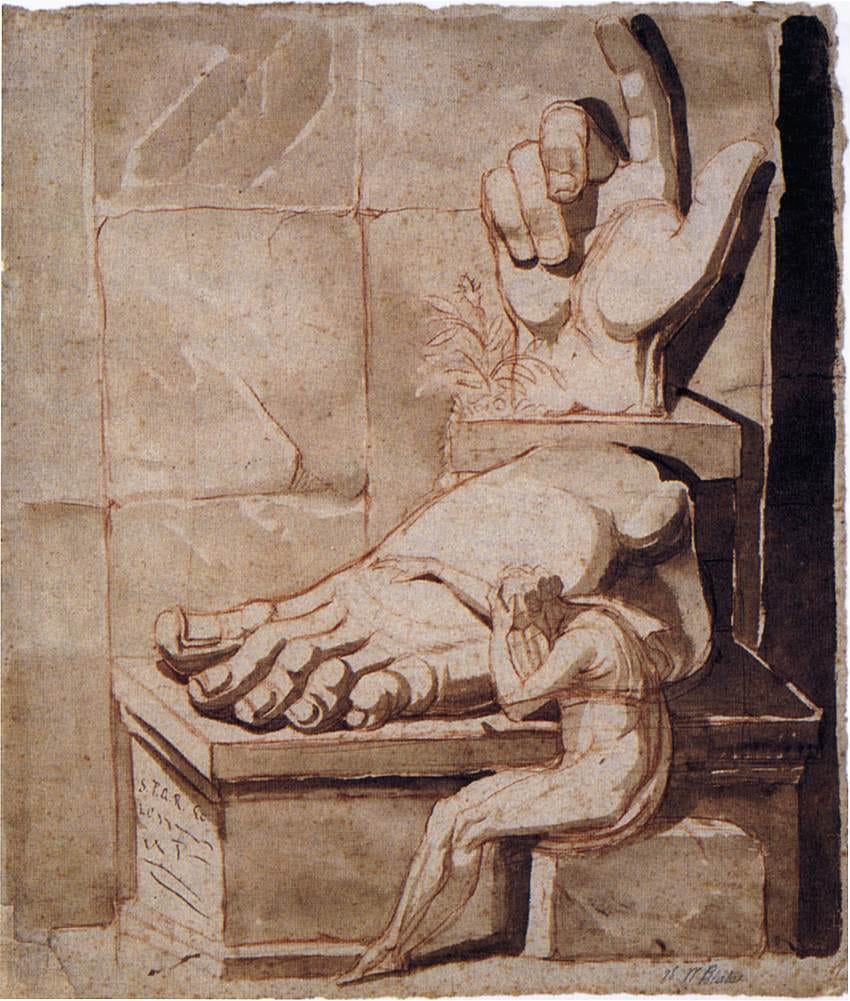Our four-part series on The Burden of the Past and the English Poet by W. Jackson Bate is over. I know, I’m sad too. After part four, I took a week off from writing this afterword, instead penning a piece about Edna St. Vincent Millay. As Mae West said, “too much of a good thing is wonderful.” While I tend to agree, I don’t know how much poetry criticism she read.
But really, Bate’s small book is marvelously insightful and my little series hardly does it justice; it’s well worth getting your own copy. There is so much scholarship and subtlety of thought in Bate’s little book you can’t help but reach a few new summits, even if you have to bumble a bit to get there at first. A real education is reading accomplished writers and critics and following up (reading up) at their suggestions. It’s really that simple.
If you’ve read the four-part series, you’ll likely be sick of hearing that in the 18th-century, a growing self-consciousness spread over the poetic landscape and artists began shrinking back in the face of great achievements, which in turn grew into a demand for “originality,” something that would allow the poets to set themselves apart from the giants of the past.
Bate concludes from his studies that the poet should double down on the past, taking strength from where one can and not to descend into the dead ends of anti-art movements like Dada or surrealism. I personally owe a great debt to Blake, who lent me his enthusiasm and other unearned strengths early on.
Bate gave his lectures in the late 60’s, as the new electric media were dethroning print culture. By the time my generation, the millennials, came of age, they had been raised by a generation who themselves grew up in an ascendant electric media environment that stressed the imagination (think Spielberg vs. Milton) at the expense of some fusty old literary tradition.
In the first half of the 20th century, T.S. Eliot, unfortunately, won the critical battle on his particular cultural war front, and his call for poetry to be difficult became the law of the land. On top of this, originality was taken to its stupidest conclusion through Ezra Pound’s call to “Make It New” which was adopted and promulgated through the Academy. "The Red Wheelbarrow" by William Carlos Williams was critically lauded (you know the one, it’s that poem about a red wheelbarrow) and suddenly, prose was now considered poetry. Brilliant. Faced with the challenge of the silver screen, the self-proclaimed stewards of poetry in the academy decided to 1.) make poetry more prose-like and 2.) make it more difficult. Poetry’s reign went out not with a bang but a whimper.
If there’s any upside to the dismantling of the Western Canon and the realization that our academic poetry “workshop” model is just that, it is in the sloughing off of the pretense of respectability that the poetry world has been clinging to so desperately. The poet’s “burden of the past” is felt far less under this reality when faced squarely.
As I’ve written on before, the digital age radically alters how we view and interact with the world (duh). The age of imagination is coming to a close, and the age of memory is returning, for good and for ill. For the poet, as for everyone, that means opportunities and risks as the old gods awaken and the royal path snaps into focus.
So, as Bate asked early on in this series: What is there left to do?
We’ll talk strategy in due time, of course. But for now, poets need to remember those who came before them, and to store up treasures in heaven for the work ahead.



Excited for the next one.